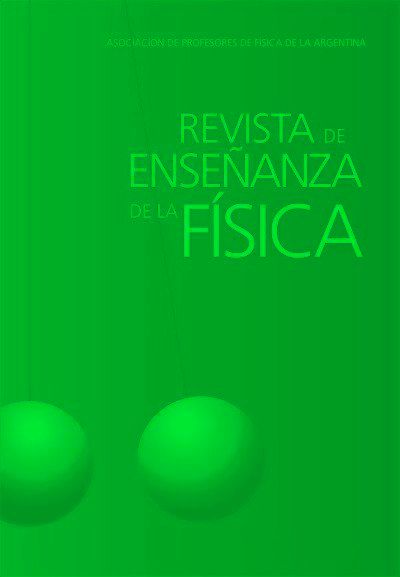Physics teaching and card games: the playful as teaching resource in teacher training
DOI:
https://doi.org/10.55767/2451.6007.v33.n2.35273Keywords:
Teaching Physics, Teaching games, Card games, Teacher trainingAbstract
We investigate how games can collaborate in the initial training of future teachers, based on qualitative research carried out in 2019,
by monitoring the Teaching Practice and Supervised Internship discipline, in the initial training course for physics teachers, at a University Public, located in the interior of the State of São Paulo (Brazil). In this context, our research focused on the preparation and use of
card games in teaching. Experience reports from future teachers about their didactic activities in high school showed that games are
valuable instruments for interaction, fun and learning. We analyze how innovation can be triggered by the mobilization of explicit and
tacit knowledge. We discussed some aspects of teacher education that emerge from the construction of games for the Teaching of
Physics, based on theoretical models by pedagogical knowledge.
References
Almeida, A. (2009). Ludicidade como instrumento pedagógico. Recuperado de: http://www.cdof.com.br/recrea22.htm.
Benetti, B. (2004). O tácito e o explícito: a formação de professores de ciências naturais e biologia e a temática ambiental.
Tese (doutorado) – Universidade Estadual Paulista, Faculdade de Ciências e Letras. Araraquara.
Gauthier, C.; Martineau, S.; Desbiens, J.; Malo, A.; & Simard, D. (2003). Por uma teoria da pedagogia: pesquisas contemporâneas sobre o saber docente (3nd ed.). Ijuí.
Kishimoto, T. M. (1994). O jogo e a Educação Infantil. São Paulo: Pioneira.
Kishimoto, T. M. (1996). Jogo, Brinquedo, Brincadeira e a Educação. 7 ed. São Paulo: Cortez.
Lopes, M. G. (2001). Jogos na Educação: criar, fazer e jogar. 4 ed. São Paulo: Cortez.
Miranda, S. (2002). No Fascínio do jogo, a alegria de aprender. Linhas Críticas, 8(14), 21-34.
Nave, R. (2016). HyperPhysics. Recuperado de: http://hyperphysics.phy-astr.gsu.edu/hbase/index.html.
Piaget, J. (1967). A psicologia da inteligência. Lisboa: Editora Fundo de Cultura S/A.
Piaget, J. (1971). A formação do símbolo na criança, imitação, jogo, sonho, imagem e representação de jogo. São Paulo:
Zanhar.
Polanyi, M. (1996). El estudio del hombre. Buenos Aires: Paidós
Downloads
Published
Issue
Section
License
Copyright (c) 2021 Lucas Massensini de Azevedo, Eugenio Maria de França Ramos, Bernadete Benetti

This work is licensed under a Creative Commons Attribution-NonCommercial-NoDerivatives 4.0 International License.
Aquellos autores/as que tengan publicaciones con esta revista, aceptan los términos siguientes:Los autores/as conservarán sus derechos de copiar y redistribuir el material, bajo los términos estipulados en la Licencia de reconocimiento, no comercial, sin obras derivadas de Creative Commons que permite a terceros compartir la obra bajo las siguientes condiciones:
- Reconocimiento — Debe reconocer adecuadamente la autoría, proporcionar un enlace a la licencia e indicar si se han realizado cambios. Puede hacerlo de cualquier manera razonable, pero no de una manera que sugiera que tiene el apoyo del licenciador o lo recibe por el uso que hace.
- NoComercial — No puede utilizar el material para una finalidad comercial.
- SinObraDerivada — Si remezcla, transforma o crea a partir del material, no puede difundir el material modificado.
- Los autores/as podrán adoptar otros acuerdos de licencia no exclusiva de distribución de la versión de la obra publicada (p. ej.: depositarla en un archivo telemático institucional o publicarla en un volumen monográfico) siempre que se indique la publicación inicial en esta revista.
- Se permite y recomienda a los autores/as difundir su obra a través de Internet (p. ej.: en archivos telemáticos institucionales o en su página web) antes y durante el proceso de envío, lo cual puede producir intercambios interesantes y aumentar las citas de la obra publicada. (Véase El efecto del acceso abierto).










